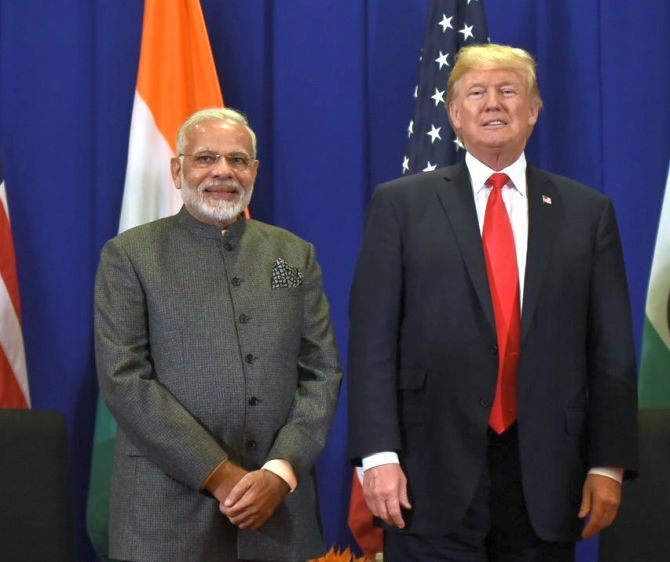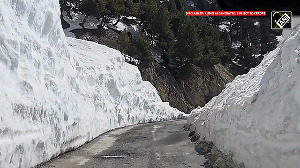'Trump was impressed by Modi.'
Lalit K Jha reports from Washington, DC.

The India-US relationship is going to get stronger and better under the Trump administration, a senior White House official has said.
"India is a natural ally of the United States, because of the shared commitment to democracy and to counter-terrorism, and because the region is so vital to the US security," Raj Shah, the White House principal deputy press secretary, told a group of Indian reporters yesterday.
Shah's comments came hours after Prime Minister Narendra D Modi and US President Donald J Trump held their second bilateral meeting in Manila on the sidelines of the ASEAN Summit.
The two countries are going to have a "strong relationship and it's going to get stronger" under this president, he said.
Shah, the highest-ranking Indian-American ever in the White House press wing, said that the US-India relationship should stand on its own leg and "not be contingent" on any other relationship.
There are a lot more in common between India and the US than that between US and China, he said.
"The relationship with Modi is his relationship with Modi. He (Trump) likes (Modi). You know he talks about other leaders too... The way in which he talks about a few other leaders that he just likes and gets along with, Modi is one of them," he added.
Modi and Trump met for the first time in June, but they have spoken on several occasions after Trump was elected president last year.
"They just get along," he said.
"I think he (Trump) was impressed with Prime Minister Modi and you know I can't speak too much further than that, but you have a situation where they like each other," Shah said.
"The fundamentals of the relationship are set for a kind of a rising tide rising between the two countries," he said.
Describing the June meeting between Modi and Trump as a "really big step," Shah said the relationship between the two largest democracies of the world is expanding in a wide range of areas, including regional security issues, trade and economy in addition to areas like terrorism.
"I think it's moved from security issues now toward economic issues in many ways... trade and energy exports, which have expanded to India in recent months actually, and a lot of regional security issues, not just kind of global terrorism. There's democracy promotion in the area," he said.
"This among other things also includes helping countries and in that region fighting terrorism. For instance, India is helping the Philippines in some of the counter-terrorism issues," he added.
He refuted apprehensions in some quarters in India about the US-China relationship and its impact on India.
"India is a natural ally of the US because of the shared commitment to democracy and to counter-terrorism, and because the region is so vital to US security," he said, adding that US-India relationship should stand on its own leg and “not be contingent" on any other relationship.
"Obviously, other interests are going to play a role. But the US and India are going to have a strong relationship and it's going to get stronger under this president," he said.
"And looking at it going forward there are so many issues that China, Pakistan other countries have a marginal role... it's really between the United States and India."
IMAGE: Prime Minister Narendra D Modi with US President Donald J Trump in Manila, November 13, 2017. Photograph: Press Information Bureau











 © 2025
© 2025